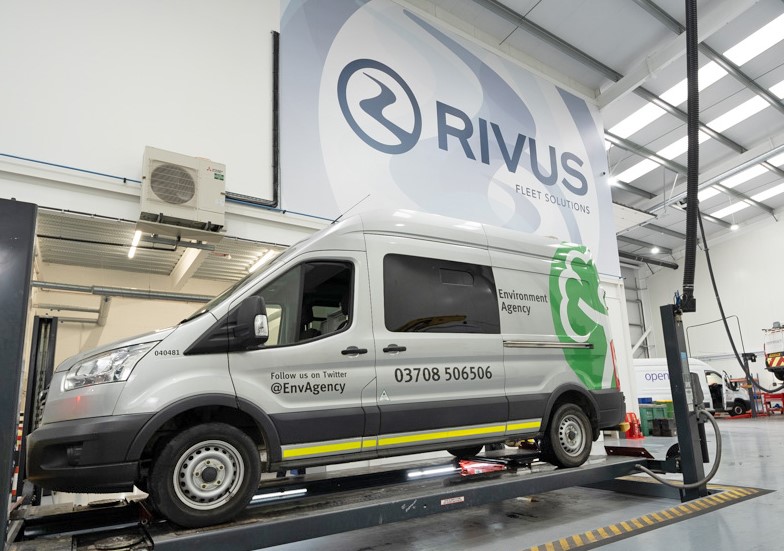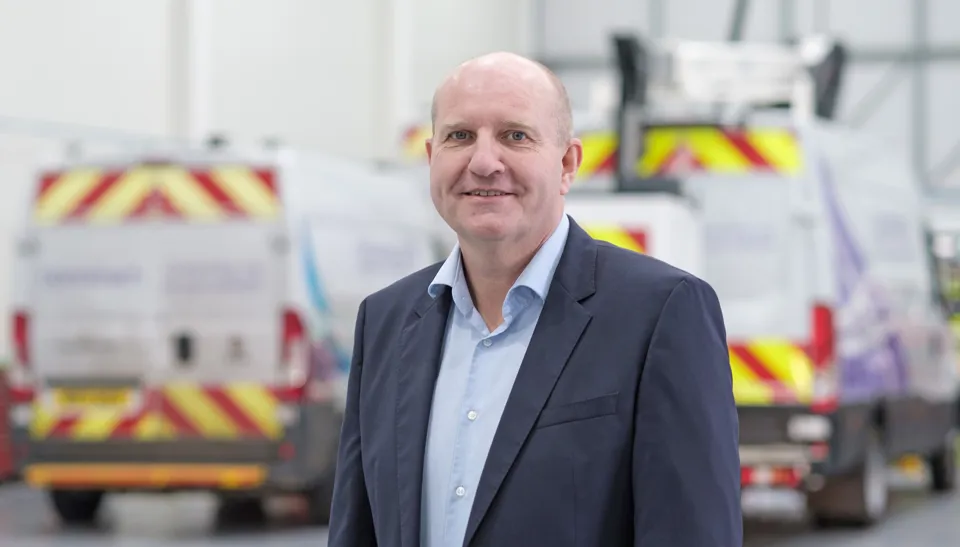Eighteen months after private equity group Aurelius acquired BT Fleet Solutions, the company is now ready to go toe-to-toe with its biggest rivals as it plots to become “the strongest player in the market”.
After rebranding the business as Rivus Fleet Solutions (Latin for river), Aurelius spent the next few months carving out IT and back office systems from BT Group and looking at ways to remove cost. This resulted in a reduction in the garage network, from 65 to 55 sites. All were unprofitable, according to Aurelius operating partner and Rivus chief development officer Michael Scheidler.
“After we looked at cost, we focused on strategic developments and creating stable, efficient and modern processes. Now it is time for growth,” he says.
“Our strategy is organic and non-organic growth looking at horizontal and vertical opportunities – anything that fits with the business plan to widen our product portfolio or plug gaps. We want to be the strongest player in the market.”
Aurelius has already made its next move, with the purchase of truck management business Pullman Fleet Services from Wincanton four month ago. The business will work alongside Rivus, sharing synergies and offering joint propositions for customers, but with no plans for full integration.
“Our strategy is to have a rounded offer to provide all key services a fleet needs for all types of vehicle,” says Scheidler. “Rivus’s main focus is light commercial vehicles (LCVs); Pullman enhances the proposition with HGVs – it gives us a one-stop shop.”
A new management team has been assembled headed by David Myers, who was appointed chief executive officer in November 2020. Notably, it’s his first fleet role after senior positions at Wolseley, Aggreko and Tyco, where he was at the opposite end of the spectrum as a company car driver.
Myers has embraced virtual technology to meet as many Rivus customers as possible to under-stand their challenges, their view of the business and their future strategies. It has helped him form a clear perspective on their priorities.
“From a customer point of view, our priority is to develop an excellent service, including processes, insights and consultancy,” he says. “They are under cost pressures and we have to simplify our relationships, including the provision of information and technology, to help them manage their costs.
“Their needs are evolving, and we have to be able to help them on that journey by having the solutions, either current or planned, to make it happen.”
Rivus has set out three development strands: electric vehicle (EV) transition (see below), digital transformation – including customer apps, self-service tools and data insight – and product innovation, such as funding.

The SMR bedrock
While service, maintenance and repair (SMR) and fleet management is the bedrock upon which BT Group build the Fleet Solutions business, Rivus is spreading its wings, taking advantage of services historically only offered to BT.
“We have invested in our accident management proposition but also funding and leasing which we already do for BT. We have developed a proposition and we are starting to get successful,” Scheidler says.
The proposition includes both operating lease and finance lease with a panel of banks providing the funding. Rivus has already signed up a handful of customers and Scheidler is confident more will follow.
 Funding, he says, offers growth opportunities but also protects the existing business.
Funding, he says, offers growth opportunities but also protects the existing business.
“We’ve seen a movement from self-finance to funding and our traditional business of fleet management and SMR could erode if we don’t offer a funding option,” Scheidler explains. “It’s important for our total proposition.”
Data will also play a vital role in supporting customers and Rivus is working on its digital roadmap. This will include evaluating how it can use telematics insight for proactive maintenance, enabling all work to be carried out as part of a scheduled service.
It recognises that companies are increasingly demanding flexibility from their partners, as the issues caused by the Covid pandemic create uncertainty across the industry.
Myers says: “There will be a lot of pressure on being flexible, where customers won’t want long-term contracts. Fleet managers are facing a lot of complexity and part of that is the analytical insights from managing a mixed fleet of EVs and diesels – technologies that behave differently and challenges the way vehicles are driven.”
Scheidler adds: “Different financing models, cost pressures, less cap ex, movements towards TaaS (transport as a service) – it’s all about flexibility. There’s also outsourcing as more customers want to hand fleet management to an expert business.”
Rivus has extensive experience to draw on, with 85,000 vehicles under fleet management (BT Group, the largest, accounts for around 32,000 vehicles). Its historic strength has been blue-chip corporates, plus local business where customers are close to the garages. Pullman, meanwhile, adds another 35,000 vehicles.
Widening fleet sizes
As Rivus improves its process efficiencies, introducing self-serve and automated services, the customer pool will widen to any size fleet, although remaining focused on mixed commercial fleets.
Myers puts the growth aspirations into “three buckets”: local market, medium size and bespoke, larger fleets.
“We’ve been successful in the bespoke and local markets, but we are less widespread in the mid-market,” he says. “So that’s where we see a lot of the opportunity.”
As a private equity owner, Aurelius has clear objectives for Rivus; chief among them is increasing value by driving revenues and profits. Eighteen months in and the progress report is looking “pretty good”, says Scheidler.
“We hardly lost any business from BT Fleet Solutions and we have secured some contracts that were up,” he says. “We have separated our systems and we are now standalone. We are making progress on innovation and, overall, we are happy with our position. We are where we should be.”
An electric vehicle ‘one-stop shop’
Rivus is developing an “overarching” EV proposition so it can “hold customers by the hand” as they transition to an electric fleet.
“We intend to provide all aspects of EV in a one-stop solution, including the vehicle with a maintenance package, but also telematics, driver training, ongoing data-based optimisation and a charging solution,” says David Myers.
“We are in consultation with a number of European charging suppliers to evaluate the best option to support our customers requirements today and tomorrow.”
The service starts with a consultation to assess the opportunity to switch vehicles to electric and identifying the appropriate ones. Rivus can also assist in the procurement process and provide the engineering expertise to test the vehicle is fit for purpose, including payloads and range.
“We take a wholelife cycle perspective,” Myers says. “But we also have a garage network that is EV-capable and we are training them further.”
At present, around 30 of the 55 garages are EV-ready, for most vehicle types, with more to follow. Technicians have embarked on rigorous training programmes to Institute of the Motor Industry standards.
Recent agreements to provide aftersales support to electric van maker LEVC and premium EV carmaker Fisker (due to enter the UK in 2023) will accelerate plans to bring the rest of the network up to speed.
However, it’s not a straightforward process. “Each customer has its own policies about how they want to work; for example, collecting the car from the garage with a minimum level of charge,” says Myers. “Different dynamics come into play, with customers themselves defining what EV readiness is.”




















Login to comment
Comments
No comments have been made yet.